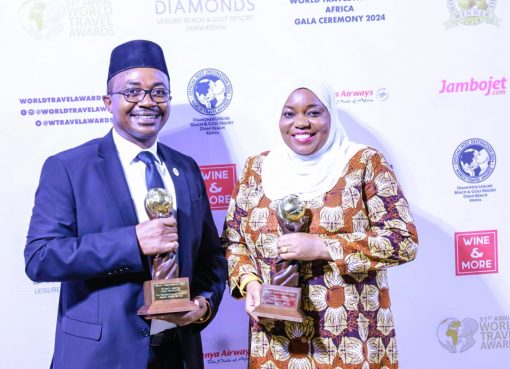A study carried out by Alzheimer’s Disease International (ADI) shows 95 percent of participants think they could develop dementia in their lifetime.
Alzheimer’s disease is the most common type of dementia, affecting up to 75 percent of all dementia cases and it is not curable.
Speaking during the World Alzheimer’s Day, the Kenyatta National Hospital (KNH) Chief Executive Officer,Dr. Evanson Kamuri in a speech read on his behalf by the KNH Deputy Director of Medical Services, Etau Ekwom said Alzheimer’s Dementia is a disease of the brain cells that is manufactured by progressive memory disturbance, impairment in reasoning and personality changes.
“Patients of dementia undergo a complete change in their lives, from being reliable elders and providers in the family to someone who is completely dependent on caregivers for day to day care and support for many years,” said Kamuri.
Alzheimer’s disease, Kamuri added is an equal opportunity illness that mostly affects people older than 65 years. The older one gets the more likely for them to be affected by the disease.
“Studies have shown that in some countries more than 50 percent of the people aged over 85 years have Alzheimer’s disease,” said Kamuri.
With this, he said, more people are likely to be affected by Alzheimer’s disease, urging the need for medical and social interventions to mitigate against the rising numbers of the disease.
Additionally, the CEO said life style changes such as regular health check-ups, adhering to treatment for diabetes and hypertension, managing life stressors and regular physical exercise all promote good mental health and prevent dementia.
The Alzheimer’s and Dementia Organisation Kenya (ADOK) Board Member, Muthoni Gichu said according to World Alzheimer Report 2019 two in three people and 62 percent of healthcare practitioners still think that dementia is a normal part of ageing rather than a neurodegenerative disorder.
Gichu added that one in five people attribute dementia to bad luck, almost 10 percent to God’s will and two percent to witchcraft.
“This calls for necessary sensitisation, increase awareness, management and control of this illness,” said Gichu.
The report reveals that stigma around dementia prevents people from seeking the information, advice, support and medical help that could improve their length and quality of life for what is one of the world’s fastest growing causes of death globally.
“The number of people living with dementia is forecast to more than triple, from over 50 million currently, to 152 million by 2050,” noted Gichu.
Furthermore, Gichu said ADOK is working with the Ministry of Health to have the first dementia facility in Kenya so as to enhance early diagnosis of the illness.
The Turfena Trust Board Chairman, David Okech said they are working together with ADOK to create a database where there is information on the number of those suffering from the disease.
“Our aim is to provide physical, mental and social activities to reduce dementia and create access to information pertaining dementia hence reducing stigmatization,” said Okech.
Okech urged policy makers to make medication and healthcare services cheaper to patients of dementia.
The survey of 70,000 people across 155 countries from 2018 to 2019 reveals astonishing attitudes towards dementia.
Survey respondents included people living with dementia, caregivers, healthcare practitioners and the general public.
A major cause for concern from the report, is the number of people across the world who think that dementia is a natural part of the ageing process.
By Charles Kirundi/Pauline Okeng’a



